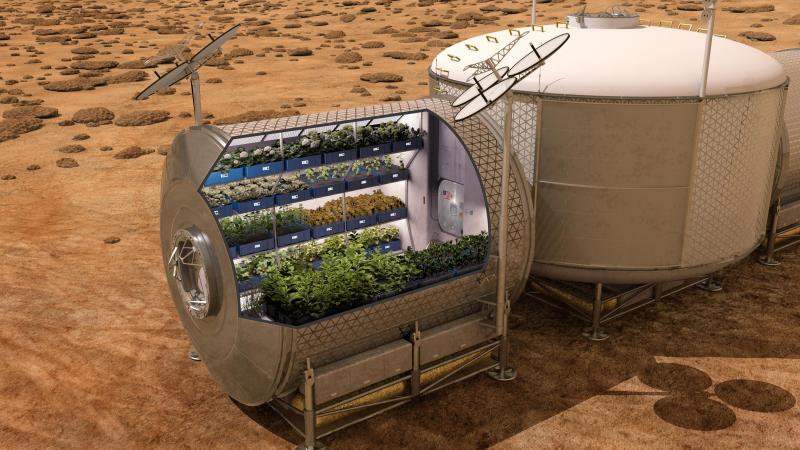
Agriculture on Mars - if previously it seemed only like the ravings of Hollywood movie scriptwriters, today it is a real task that stands before the world's scientists. And this task was set by Elon Musk, who is" ardently pursuing" the idea to colonize the planet. But does agriculture have a future on the "Red Planet"? The World of NAN correspondent tried to find the answer to this question.
HOW WILL SPACE EXPERIENCE HELP ON MARS?
The space agency became interested in agriculture in space immediately after the installation of spacecraft in orbit. Initially, scientists investigated the response of seeds and plants to weightlessness in space. The very first plant to go into space was corn, whose seeds were sent on a suborbital flight in July 1946 on a U.S. V-2 rocket. Every rocket launch thereafter was accompanied by other experimental samples.
Soviet cosmonauts Vladimir Kovalyonok and Alexander Ivanchenkov were the first to grow and eat something in space in 1978. On the Salyut-4 space station in the Oasis installation, the cosmonauts experimented on growing plants. During the experiment, they managed to grow stalks in onions. Which, later, the astronauts tried to eat them without the approval of the management, apparently they missed the food from Earth very much.
Agriculture in space evolved, experiments continued with other crops. The results were different, but great success was impossible to achieve for many years. Biologists were able to cultivate greens and get lettuce leaves, but they could not grow anything substantial. In December 2020, however, there was a big breakthrough. Then astronauts on the international space station grew radishes, it was the first time they were able to grow a full-fledged root vegetable. But the space agency's plans to fully provide astronauts with products from orbit did not end there.
Experiments in space gave the astronauts a great learning experience. They discovered what seeds are resistant to the space environment, what plants are able to grow in zero gravity and absolute containment. Perhaps all this knowledge will help future colonizers of Mars be fully engaged in agriculture on the "Red Planet".
AND THE SOIL IS SUITABLE
The development of agriculture on Mars is necessary for self-sufficiency, since transporting products from Earth is a long and very expensive process. In addition, Musk's key idea was that the future Martians would not be dependent on Earth.
By the way NASA (National Aeronautics and Space Administration) supported the idea of the entrepreneur and immediately began conducting experiments. Using data from the rover, scientists have created an analogue of the Martian soil. And the ecologist from the Netherlands Viger Vamelinkom together with a group of researchers planted seeds of various plants such as mustard, lettuce, potatoes, tomatoes and many others in the soil. For purity of the experiment samples were watered with demineralized liquid, which, according to scientists, can be obtained from the Martian lava tubes, where, according to researchers, huge deposits of frozen liquid are preserved.
The results of the experiment greatly impressed the scientists. Most of the plants sprouted with a slight delay, yielded crops and even seeds. Thus, scientists have proved that with proper treatment the Martian soil may be suitable for the cultivation of crops. It is worth noting that the experiment was conducted under terrestrial conditions.
IT'S NOT THAT SIMPLE!
If the Martian soil with the proper amount of fertilizers is suitable, the conditions on the planet itself for any living creature are as extreme as they can be. The surface temperature on Mars in summer can vary from -53 to +22 degrees Celsius, and in winter it can drop to -100 degrees Celsius. Also, the atmosphere of Mars contains only 1% oxygen, while on Earth this figure is 21%. Perhaps on our planet there is not a single species of food plants, which would survive in these conditions.
Scientists plan to solve this problem by using the experience gained on space stations, with the help of hermetic greenhouses. In their opinion, even today they will be able to create a fully airtight room on Mars, in which it is possible to recreate terrestrial conditions. And the first colonists of the "Red Planet" will have to build it all, and how much time is needed for this and how much it will cost is not voiced, but it is already clear that it's a considerable amount.
Another problem is water. Researchers have discovered about 20 thousand cubic kilometers of dry ice on the polar Mars. Elon Musk suggested using thermonuclear bombs to melt the ice, but according to calculations, this option was unrealistic.
Then an alternative was proposed by paleontologists from NASA, who during the study of the planet discovered that there is water in liquid or solid state inside Martian caves. Naturally it is toxic and unusable, but this problem can be solved with the help of filters.
THE BEST CROP FOR MARS
University of Utah botanist Bruce Bugbee, who has worked with NASA for more than 30 years and is engaged in growing plants on board the International Space Station, voiced another problem: "It will be impossible to grow fruit-bearing trees and livestock on Mars, as growing food for them would be too expensive.
It turns out that the first Martians will be satisfied only with dried food, vitamins and water. According to scientists, it will greatly affect the health of the colonizers, because they will not receive all the necessary components for proper life sustenance. This question remains open for now.
According to NASA, in total there would be 5 crops grown on Mars, perhaps over time, this number will change. Today, Bruce Bugbee said that Mars will definitely grow soybeans, as this culture is important for the first Martians, because of the variety of products that can be made from them.
Thus, Mars has all the conditions for the development of agriculture. Naturally, this process will take a huge amount of time, labor and financial means. Besides, theory has always differed from practice, and nobody knows how certain crops will behave under present conditions on Mars. But as experiments have shown, this idea is feasible and we can only wait and hope for success of the first Martian farmers.






































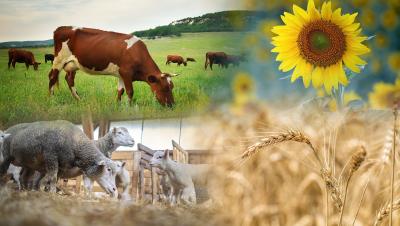
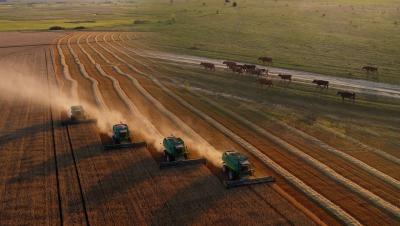
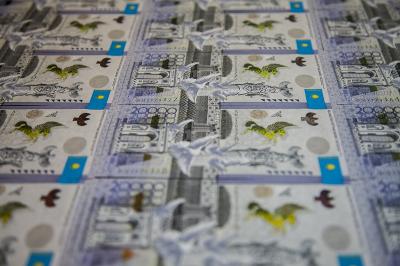

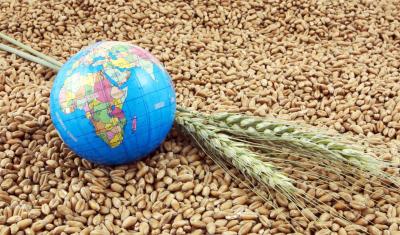

Обсуждение